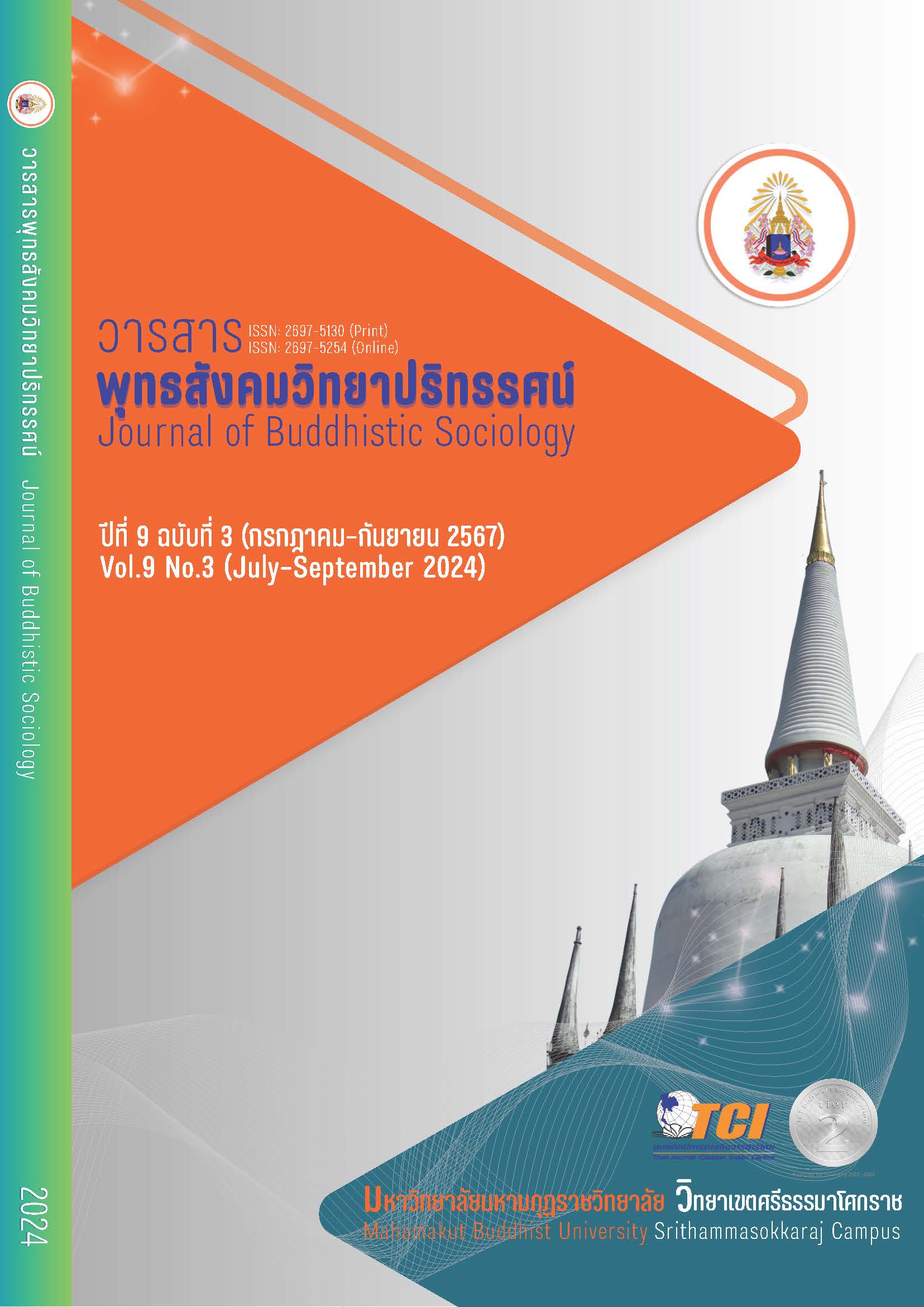PRINCIPLES OF HUMAN RESOURCE MANAGEMENT AND ORGANIZATIONAL COMMITMENT
Main Article Content
Abstract
Human resources are more critical than other resources used in production. Without people capable of managing the organization, the organization cannot exist. The bigger the organization, the more necessary the human resource management unit is. Building organizational commitment is what executives want to happen in the organization because the employee's commitment to the organization is the main factor that leads to the success of the organization. It is also the basis for motivating employees to work in management or operations. Organizational engagement can predict the turn-on rate of organizational members. Individuals with high organizational engagement always strongly desire to stay with the organization. As a result, the rate of turnover and absenteeism decrease. It can also motivate members of the organization to perform better than those who are not affiliated with the organization. Organizational commitment is a form of personal attitude and behavior that reflects the organization's effectiveness. Members' lack of commitment to the organization will have a negative effect, causing undesirable organizational behavior such as neglecting to perform duties, lack of punctuality in work, absenteeism, job rotation, and eventually resigning from the organization. Resigning from the job will create problems in human resource management that must invest in recruitment, selection, training, and development of new employees, including the employees' morale. Therefore, employee retention is a factor that also measures success in human resource management.
Article Details

This work is licensed under a Creative Commons Attribution-NonCommercial-NoDerivatives 4.0 International License.
References
กอปรเชษฐ ตยัคคานนท์. (2544). หลักจิตวิทยาการบริหาร (พิมพ์ครั้งที่ 4). กรุงเทพมหานคร: เปลวอักษร.
กานดา จันทร์แย้ม. (2546). จิตวิทยาอุตสาหกรรมเบื้องต้น. กรุงเทพมหานคร: โอ.เอส.พริ้นติ้ง เฮ้าส์.
ณัฎฐพันธ์ เขจรนันทน์. (2547). การจัดการทรัพยากรมนุษย์. กรุงเทพมหานคร: ซีเอ็ดยูเคชั่น จำกัด (มหาชน).
นภาเพ็ญ โหมาศวิน. (2533). ปัจจัยที่มีอิทธิพลต่อความผูกพันของสมาชิกในองค์การศึกษาศึกษา เฉพาะกรณีสำนักงานปลัดสำนักนายกรัฐมนตรี. ใน สารนิพนธ์รัฐศาสตรมหาบัณฑิต. มหาวิทยาลัยธรรมศาสตร์.
พิชิต พิทักษ์เทพสมบัติ. (2557). ความผูกพันต่อองค์การ. กรุงเทพมหานคร: เสมาธรรม.
ภรณี (กีรติบุตร) มหานนท์. (2529). การประเมินประสิทธิผลขององค์การ. กรุงเทพมหานคร: โอ เดียนสโตร์.
รังสรรค์ ประเสริฐศรี. (2549). การจูงใจและการเสริมแรงพฤติกรรมองค์กร. กรุงเทพมหานคร: ธรรมสาร.
สร้อยตระกูล (ติวยานนท์) อรรถมานะ. (2554). พฤติกรรมองค์กร : ทฤษฎีและการประยุกต์ (พิมพ์ครั้งที่ 3). กรุงเทพมหานคร: มหาวิทยาลัยธรรมศาสตร์.
สุเมธ แสงนิ่มนวล. (2555). ทำอย่างไรจึงเป็นนักบริหารชั้นยอด (พิมพ์ครั้งที่ 3). กรุงเทพมหานคร: บุ๊คแบงค์.
อภิสิทธิ์ หนุนภักดี. (2549). ขวัญกำลังใจในการปฏิบัติงานของพนักงานองค์กรการโทรศัพท์แห่งประเทศไทยที่กำลังจะแปรรูป. กรุงเทพมหานคร: คณะรัฐศาสตร์จุฬาลงกรณ์มหาวิทยาลัย.
อุทัย หิรัญโต. (2532). หลักการบริหารงานบุคคล. กรุงเทพมหานคร: โอ.เอส.พริ้นติ้ง เฮ้าส์.
Beach, Dale S. (1997). Personnel : The Management of People Work. New York: The Macmillan Company.
Coughlin and Patricia Kathleen. (2009). The lmpact of Teacher Turnover on The Learning Organization of Parish Elementary School. In Doctoral dissertation Education Administration. Immaculata College.
Davis, Ralph C. (1964). Managerial Psychology. The University of Chicago Press.
Milton, Charles R. (1981). Human Behavior in Organization : Three Level of Behavior. New Jersey: Prentice – Hall.Inc.
Saks, A. M. (2006). Antecedents and consequences of employee engagement. Journal of Managerial Psychology, 21, 600-619.
Schaufeli & Bakker. (2004). Job demands, job resources, and their relationship with burnout and engagement: A multi-sample study. Journal of Organizational Behavior, 25, 293-315.
Steer, et al. (1985). Managing effective organization : Antitradition. Boston: Kent Publishing.
Wirzesniewski, A., & Dutton, J. E. (2001). Crafting a job: Revisioning employees as active crafters of their work. Academy of Management Review, 26, 179-201.
Yoder. (1959). Personnel Principle and Policies. Tokyo: Meruzen Company.


